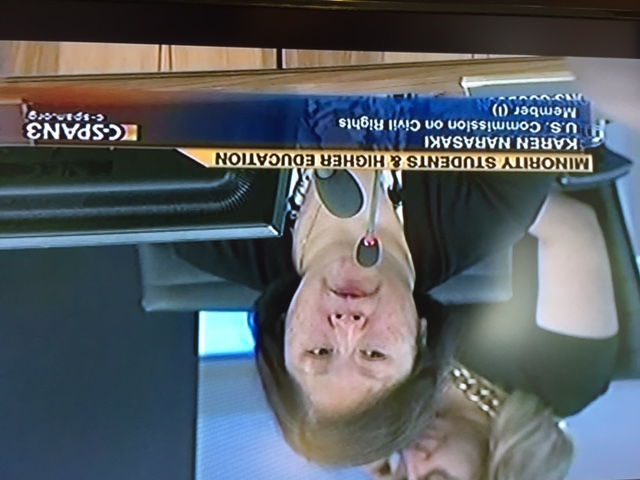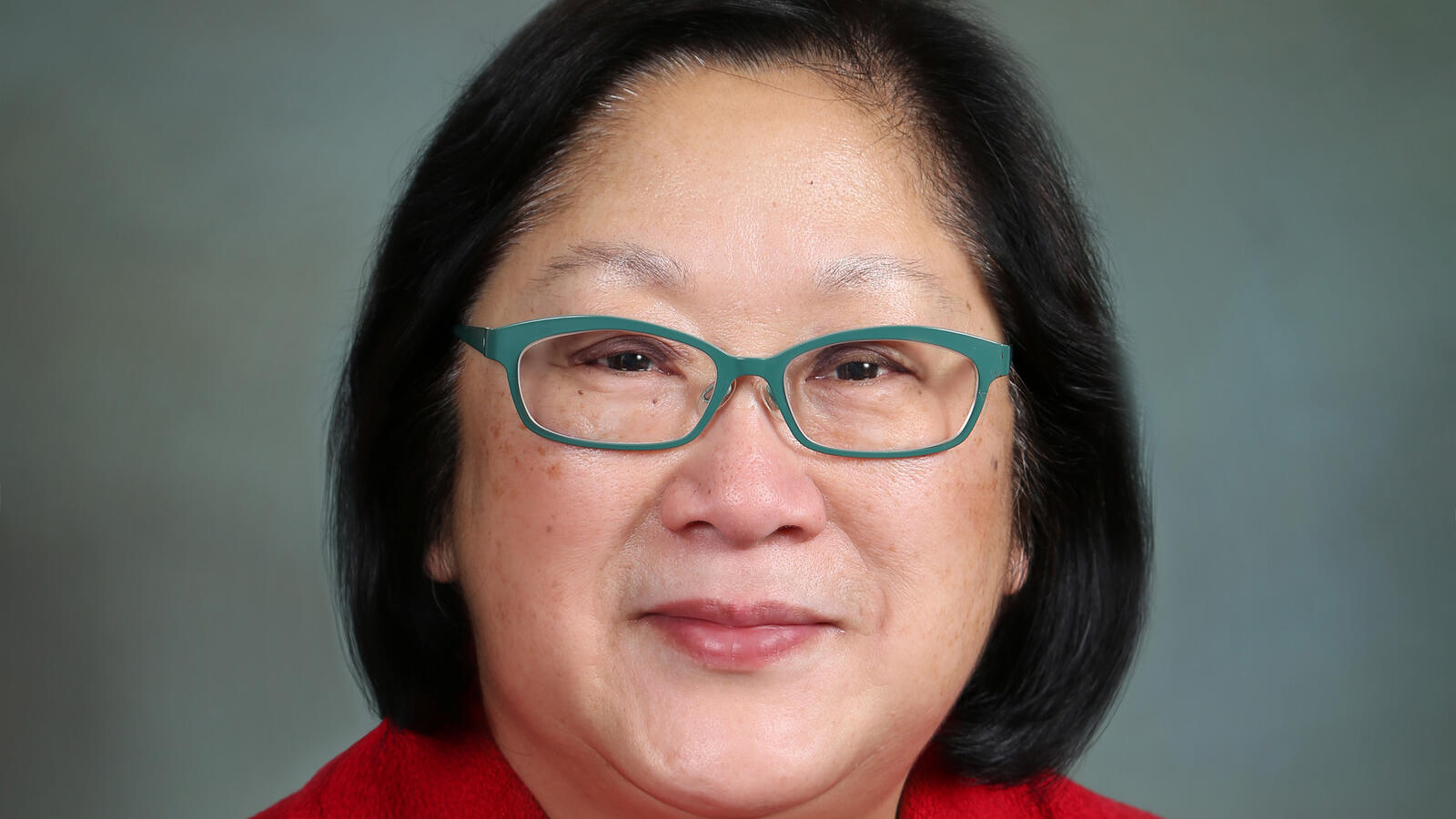What is your most enduring memory of your time at Yale?
I loved my time at Yale and appreciated the diversity of my freshman suite in Lawrence. I shared a room with a Jewish American dancer from Pittsburgh. The other double was a devout Christian Puerto Rican from New York who thought chocolate milk came from chocolate cows and a Catholic socialist from Malaysia. One single had a Caucasian woman from Cleveland who attended a private country day school that had cows. The other single had a blonde swimmer. Yale provided a world class education but what I value most is what I learned outside of the classroom from the incredible diversity of students. I was active in the Asian American Student Association and with the Third World Alliance. I learned how to be a leader and how to work in coalitions during a time when apartheid in South Africa was a huge issue on campus and when Asian American students were fighting for classes on Asian American Studies and a cultural center. We invited the President of Yale to a meeting in the small office we had and everyone (about 3 dozen of us) put our shoes outside in the hallway to make a vivid point. We got some seminars, but it would take many years to get a cultural center.
How has your identity shaped your Yale experience?
 I remember being told that Yale's original mission was to graduate 1,000 male leaders and I took that to heart. Because of affirmative action, I had the opportunity to gain knowledge and skills and build networks with other young leaders to serve my community. I had asked my father how the United States could violate its own Constitution and imprison citizens without any due process simply based on their ethnicity and he told me it was because too few people stood up to defend the Constitution and our community. That led me into wanting to understand how people could ever do something like that to other people, to understand politics, history and the fight for fairness and equality. During my time at Yale, while I continued to be friends and learn also from my freshman suitemates, I explored my identity and felt a responsibility to use the privileges I'd been given to help organize the East Coast Asian Student Union and hold an East Coast Asian American student conference at Yale. As a student on financial aid working in the Dining Hall, my experience was very different from the many students who graduated from private schools and came from families with more money than I could imagine and who had the privilege of not having to experience racism or sexism. In some ways, I think I had the richer experience.
I remember being told that Yale's original mission was to graduate 1,000 male leaders and I took that to heart. Because of affirmative action, I had the opportunity to gain knowledge and skills and build networks with other young leaders to serve my community. I had asked my father how the United States could violate its own Constitution and imprison citizens without any due process simply based on their ethnicity and he told me it was because too few people stood up to defend the Constitution and our community. That led me into wanting to understand how people could ever do something like that to other people, to understand politics, history and the fight for fairness and equality. During my time at Yale, while I continued to be friends and learn also from my freshman suitemates, I explored my identity and felt a responsibility to use the privileges I'd been given to help organize the East Coast Asian Student Union and hold an East Coast Asian American student conference at Yale. As a student on financial aid working in the Dining Hall, my experience was very different from the many students who graduated from private schools and came from families with more money than I could imagine and who had the privilege of not having to experience racism or sexism. In some ways, I think I had the richer experience.
What is your hope for the future of the Yale alumni community?
I am appreciative that Yale is finally having its own racial reckoning. I'm glad the Yale President reversed his original refusal to change the name of Calhoun and that the school is more seriously working to improve the diversity of its faculty and use some of its endowment to help moderate and low-income students, so they don't have to face a mountain of debt. It took me a decade to pay off my loans so that I could afford to work full time on civil rights at a nonprofit which required me to take a 50% cut in salary from being in a large corporate law firm.
I feel it is promising that the Yale Alumni Association is working to understand why alumni of color are less likely to come back to reunions or be active in the alumni clubs and to engage us. There is a wealth of untapped knowledge in its alumni of color.
What advice would you give to fellow or future Yalies?
Take every opportunity to learn from each other and to keep learning, even from those with whom you don't agree or think you share nothing in common. Being challenged in what you think you know and what you believe, will help you grow and make you a better citizen. You've have been given an extraordinary learning opportunity and network, and you owe it to yourself, your fellow students and students to come, to give something back to the school and to your country.


 I remember being told that Yale's original mission was to graduate 1,000 male leaders and I took that to heart. Because of affirmative action, I had the opportunity to gain knowledge and skills and build networks with other young leaders to serve my community. I had asked my father how the United States could violate its own Constitution and imprison citizens without any due process simply based on their ethnicity and he told me it was because too few people stood up to defend the Constitution and our community. That led me into wanting to understand how people could ever do something like that to other people, to understand politics, history and the fight for fairness and equality. During my time at Yale, while I continued to be friends and learn also from my freshman suitemates, I explored my identity and felt a responsibility to use the privileges I'd been given to help organize the East Coast Asian Student Union and hold an East Coast Asian American student conference at Yale. As a student on financial aid working in the Dining Hall, my experience was very different from the many students who graduated from private schools and came from families with more money than I could imagine and who had the privilege of not having to experience racism or sexism. In some ways, I think I had the richer experience.
I remember being told that Yale's original mission was to graduate 1,000 male leaders and I took that to heart. Because of affirmative action, I had the opportunity to gain knowledge and skills and build networks with other young leaders to serve my community. I had asked my father how the United States could violate its own Constitution and imprison citizens without any due process simply based on their ethnicity and he told me it was because too few people stood up to defend the Constitution and our community. That led me into wanting to understand how people could ever do something like that to other people, to understand politics, history and the fight for fairness and equality. During my time at Yale, while I continued to be friends and learn also from my freshman suitemates, I explored my identity and felt a responsibility to use the privileges I'd been given to help organize the East Coast Asian Student Union and hold an East Coast Asian American student conference at Yale. As a student on financial aid working in the Dining Hall, my experience was very different from the many students who graduated from private schools and came from families with more money than I could imagine and who had the privilege of not having to experience racism or sexism. In some ways, I think I had the richer experience.


